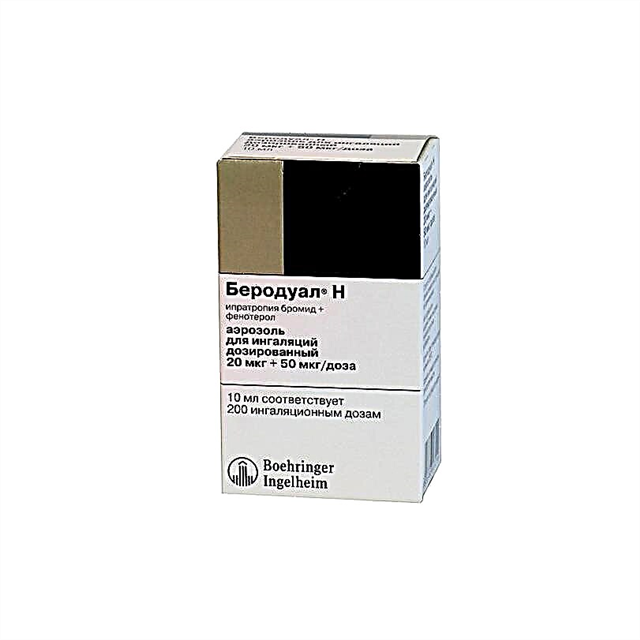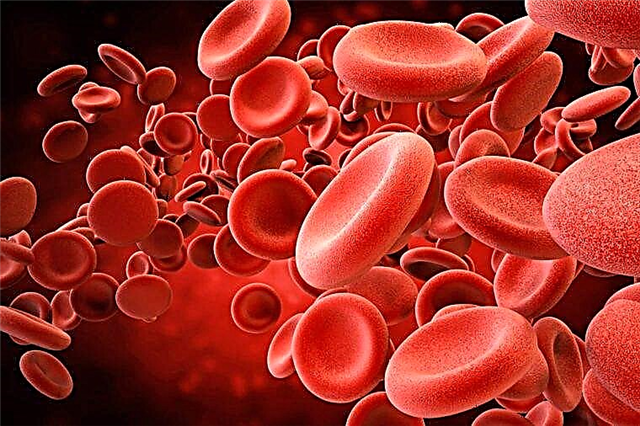
Screening ultrasound is very important during pregnancy. With this method, doctors receive information about how the fetus develops in the mother's womb. This article will help expectant mothers figure out why this study is being conducted.

What it is?
At present, it is impossible to imagine the diagnosis of various pathologies of pregnancy without ultrasound examinations. The essence of the method is the principle of penetration and reflection of ultrasonic waves from the internal media of the body. With the help of ultrasound of the small pelvis, it is possible to identify various deviations in the course of pregnancy in various periods of intrauterine development of the fetus.

The first trimester is a very important period when all the main internal organs are formed in the embryo. Timely diagnosis in this period allows you to identify developmental anomalies and emerging anatomical defects.
It should be noted that you should not abuse the ultrasound scan in the first weeks of pregnancy.
The essence of prenatal ultrasound screening, which is performed in the 2nd trimester, is already determination of dangerous genetic and chromosomal pathologies. Also at this time it is possible to assess the functioning of all vital systems of the fetus's body. During this period of development of the unborn child, it is possible to determine the work of the heart and heartbeat. Ultrasound can also detect various orthopedic disorders.

Dates
In each period of pregnancy, 1 screening is performed. In this case, ultrasound cannot be considered harmful. More frequent ultrasound can lead to the fact that after birth, the child will develop various neurological or mental disorders.
1 trimester is a mandatory period for performing ultrasound screening. Doctors prescribe to undergo such a diagnostic course at 10-14 weeks of pregnancy. The 2nd screening is carried out in the next trimester of pregnancy. In this case, the diagnostic complex is carried out at 16-20 weeks.

Screening of the 3rd trimester is carried out for women with various disorders or abnormalities of fetal development. If the first ultrasound screening tests showed no abnormalities, then a third screening may not be required. The need for a complex of studies in this period of pregnancy is determined by the obstetrician-gynecologist observing the pregnant woman.
Screening for the 3rd trimester is usually done at 30-34 weeks. The period of its implementation can be shifted by 7-10 days for medical reasons. In the third period, the identified indicators are necessary for doctors to choose the optimal tactics of obstetrics.

An ultrasound examination carried out at this stage of pregnancy establishes presentation of the fetus, as well as the presence or absence of signs of placental insufficiency.
The third screening allows doctors to finally figure out whether to carry out a cesarean section.
What is it for?
Doctors recommend screening for all pregnant women. It is especially important to do such research for those women in whom the course of pregnancy proceeds with various disorders. It is also better not to avoid undergoing ultrasound examinations for expectant mothers who conceive a child after 35 years. The presence of various genetic diseases in close relatives or parents of a pregnant woman is an important reason for an ultrasound scan.

Possible problems
An ultrasound study, carried out at 11-12 weeks, already reveals a rather dangerous clinical condition - anencephaly. It is characterized by complete or partial absence of the fetus's brain. The presence of this symptom is an indication for termination of pregnancy. This pathology is revealed, as a rule, by the end of the 1st trimester.
Hydrocephalus - another serious clinical condition of the fetus. In this case, the ultrasound specialist detects a large amount of cerebrospinal fluid in the baby. Quite often, this symptom is combined with other developmental anomalies. The progression of this condition can also become a significant indication for termination of pregnancy.


Encephalomeningocele - a pathological condition that is perfectly detectable during screening. This is usually a transient pathology. In order to assess and monitor the course of this condition, doctors prescribe several repeated ultrasound examinations. The diagnosis is completely withdrawn if at the next screening such violations are not established.

It is important to note that the conclusion of an ultrasound scan is not yet a diagnosis. To establish the exact pathology, a mandatory repeated consultation with an obstetrician-gynecologist who observes a pregnant woman is required.
Several screenings are performed during pregnancy. They allow you to track the dynamics of growth and development of the fetus.
Heart defects - a very important pathology that can be easily identified using ultrasound. To assess the level of blood flow in this case, Doppler mapping is used. With this test, it is possible to determine abnormal blood flows (regurgitation) due to existing abnormalities in the work of the heart valves. Identification of this pathology is a very important conclusion, which necessarily requires further rechecking.

Accumulation of abnormal fluid in the abdomen of the fetus (ascites) - an unfavorable sign. The appearance of this symptom requires the obligatory diagnosis of diseases of internal organs in a baby developing in the mother's womb. In some cases, anomalies in the development of the cardiovascular system can lead to the development of this condition. Rh-conflict also contributes to the accumulation of abnormal fluid in the abdominal cavity of the fetus.
If the baby has any genetic or chromosomal pathologies, then in this case, a geneticist's consultation is required. To clarify the diagnosis, the doctor may prescribe an additional series of blood tests.


Proper preparation
To get reliable results, it is very important to properly prepare for the study. Doctors attach great importance to this.
So:
- On the eve of ultrasound screening, a pregnant woman should observe lipid-lowering diet. Dinner before the exploration should be as light as possible. All fatty and fried foods are completely excluded. A week before the study, it is better to eat as light as possible, but high-calorie food. A pregnant woman should not restrict protein. However, you should choose the lightest types of protein foods. These include chicken, turkey, white fish, and lean beef.


- 2-3 days before ultrasound screening, the expectant mother should as much limit the consumption of any vegetables and fruits. They contain quite a lot of coarse fiber, which contributes to gas formation. The intestines swollen from gas will not allow an ultrasound specialist to fully conduct a study. In this case, the doctor will give a conclusion about strong echo negativity.
- To obtain reliable results, it is very important limit intense physical activity... This should be done at both the first and second screening. Attending yoga for pregnant women can lead to inaccurate ultrasound results.
- For pregnant women you can't be nervous... Prolonged or prolonged psychoemotional stress has a negative effect on uteroplacental blood flow. If the expectant mother is constantly nervous and worried, then in the end this contributes to the formation of her placental insufficiency.


Research can be done in several ways - transabdominal and transvaginal. In the early stages of pregnancy, doctors prefer to prescribe transvaginal ultrasound. Such a study is carried out only if the expectant mother has no contraindications to its conduct.


Standards
Research is usually carried out on a special couch. At the same time, the future mother lies on her back. A closer look is required in later stages of pregnancy. To do this, an ultrasound specialist can ask the expectant mother to roll over on her left side.
A study performed with a full bladder also helps to get more reliable results. If such a filling is required, then the future mother must be warned about this in the women's clinic in advance. The transabdominal technique is usually performed with a full bladder. Transvaginal ultrasound is best done after it has been emptied.

After the ultrasound examination, the results are deciphered. This is done by an obstetrician-gynecologist observing a pregnant woman. Doctors of ultrasound diagnostics do not make diagnoses. In some cases, to exclude the existing pathology, additional biochemical blood tests are required.
For better visualization, the specialist treats the belly of the pregnant woman with a special gel. This transparent substance is applied to the anterior abdominal wall, and after examination is completely removed. It should be noted that the application of this product is not capable of causing any allergic manifestations.

In the first trimester, a number of clinical indicators are determined:
- One of them is the coccygeal-parietal size (CTE). It also requires the estimated weight of the fetus. With the help of this indicator, you can also establish the expected duration of pregnancy. The CTE is estimated in millimeters.
- Nasal bone length Is another clinical indicator used to assess the initial period of intrauterine development of the embryo. The absence of this element in a future baby is an unfavorable symptom. If the nasal bone is absent in the fetus by the 14th week of its development, then in 75% of cases this indicates the presence of serious anomalies.


- Biparietal fetal size (BPD) allows you to evaluate a very important indicator - the development of the fetal brain. Also, this clinical sign can become an indirect manifestation of neurological disorders developing in a child. This indicator is also determined in mm. At 10 weeks of gestation, the values of this criterion are 14 mm.
- Collar thickness - This is an important clinical sign that allows you to identify Down syndrome at the earliest stages of its formation. At 11 weeks of gestation, this figure is 0.8-2.4 mm. It is very important to carry out the dynamics of changes in this ultrasound criterion for several weeks. This will indirectly confirm or exclude Down syndrome in a baby.


- For assessing the work of the cardiovascular system the heartbeat is necessarily counted. At 11 weeks of gestation, this figure is 153-177 beats per minute. A strong decrease in this criterion is an unfavorable symptom that requires additional diagnostics.

Ultrasound screening is necessary to establish gross pathologies of intrauterine development. This complex of research is not carried out only at the request of the expectant mother, and must be performed within strict time limits for this.
You can find out why ultrasound screening during pregnancy is done in the following video.



